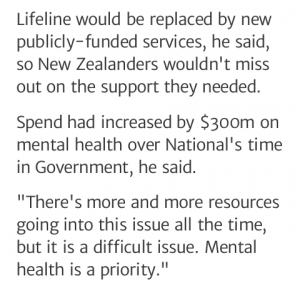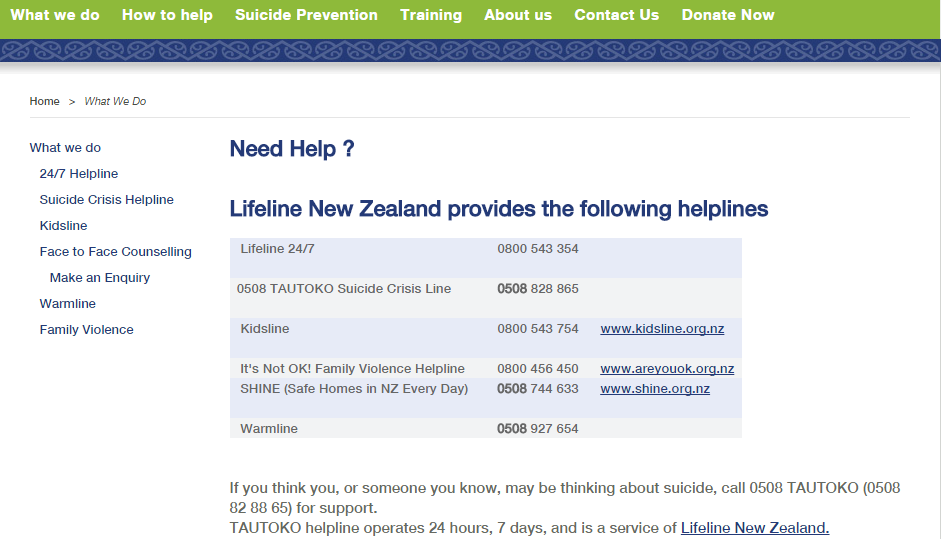Several weeks ago, I experienced a crisis. It was following the suicide of a friend, and I was struggling to cope. I called Lifeline at about 2 o’clock in the morning.
I suffer from depression, anxiety, and PTSD. Along with my physical illness, these things present serious challenges in my life. It doesn’t take much to push me towards breaking point.
I don’t like to talk publicly about my mental illness. But I’m doing so now because I am hoping to add my story, and my voice, to those who are trying to save Lifeline.
Lifeline is a 24 hour crisis counselling service. There is nothing else like it in New Zealand. Amidst the ongoing funding cuts for mental health support, it is utterly vital.
Despite the Government’s claims of commitment to mental health services, they will no longer fund Lifeline. Without this, the service only has enough money to continue for another year. Unless something changes, they will have to close in 365 days, suffering the same fate as other vital services like Relationships Aoteroa.
Source: http://www.stuff.co.nz/national/health/81609546/lifeline-faces-closure-as-government-rejects-pleas-for-funding
I’d really like to know what those new “publicly-funded services” will be, and where that $300m spend is actually going.
Lifeline is calling for public help to stay open. And that’s just wrong, because if there’s money for publicly-funded services, if there’s $300m for mental health, then why can’t a percentage of that go towards a service that is already running and already successful?
I’ve seen more and more community organisations turning to the public, turning to sites like Givealittle, turning to fundraising fairs and auctions, to try to fund their core business. That just seems wrong to me. Services like Women’s Refuge and Lifeline shouldn’t have to rely on unreliable and unsustainable community support. And it is unsustainable, because as happy as the government may be that communities are rallying round to support each other – there’s only so much people can give. There’s such a thing as charity fatigue. And when your every social media feed is filled with pleas for donations – eventually, people switch off. Their compassion and their wallets reach a limit. It’s the poor supporting the poor. And it cannot go on.
When I called Lifeline last month, I didn’t know what else to do. It was the middle of the night, I was extremely distressed, I wasn’t thinking straight. The phone was answered by the kind voice of a man who introduced himself as Peter*. Peter asked me how he could help, and then sat quietly until I was able to stop sobbing enough to say hello.
We talked for close to two hours. Not only did he calm me down and bring me out of crisis mode, he offered unjudgemental guidance on a number of issues I was trying to deal with. He spoke to me about how grief can be experienced following suicide. I sat on the floor of my bedroom and spoke with this man with the kind voice and calm professionalism and knew that I was going to be ok.
What if that hadn’t been an option? Well, we don’t know. I don’t want to have to speculate, because it should be an option.
I don’t know what we can do to save Lifeline. I don’t know what we can do to get the government funding reinstated. Endless petitions seem to go nowhere. Public outcry is ignored. This blog will fall on deaf ears. But I had to write it anyway, because I want it to be a matter of public record that Lifeline has saved my life, and countless others. Losing it will leave a gaping hole in mental health support in New Zealand.
And despite all the goverment’s promises, there’s no way that hole will be easily filled.
*name changed.



Pingback: 99th Down Under Feminists Carnival | Pondering Postfeminism